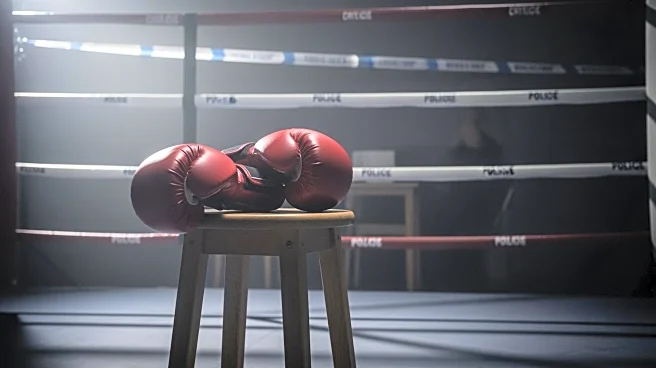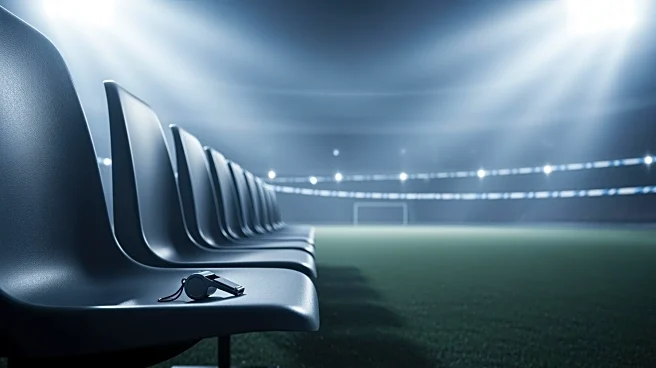What's Happening?
Middleweight UFC fighter Reinier de Ridder's coach, Harun Ozkan, made the decision to stop the fight against American Brendan Allen at UFC Fight Night 262 in Vancouver, Canada. De Ridder lost by technical
knockout after refusing to enter the fifth round. Ozkan took full responsibility for the decision, emphasizing the importance of prioritizing his fighter's health over continuing the match. This decision was made to prevent unnecessary damage and ensure de Ridder could 'live to fight another day.' Allen's previous fight was a victory against Marvin Vettori at UFC 318, while de Ridder had narrowly defeated Robert Whittaker in his last match.
Why It's Important?
The decision by Harun Ozkan highlights the critical role of coaches in safeguarding the health and well-being of athletes in high-stakes sports like MMA. This incident underscores the ongoing debate about fighter safety and the responsibilities of coaches to make tough calls that prioritize long-term health over immediate competition outcomes. The decision could influence how other coaches approach similar situations, potentially leading to a shift in how fighter safety is managed in the sport. This could also impact the perception of MMA as a sport that balances entertainment with athlete welfare.
What's Next?
The decision to stop the fight may prompt discussions within the MMA community about the protocols and guidelines for fighter safety. Stakeholders, including coaches, fighters, and regulatory bodies, might consider revising existing rules to better protect athletes. This could lead to more stringent health assessments and clearer guidelines on when a fight should be stopped. Additionally, de Ridder's future matches may be closely watched to see how this decision impacts his career and approach to fighting.
Beyond the Headlines
This event may also bring attention to the ethical responsibilities of sports coaches and the pressures they face in balancing competitive success with athlete health. It raises questions about the long-term impacts of repeated injuries in contact sports and the role of sports organizations in ensuring athlete safety. The decision by Ozkan could serve as a case study for sports ethics and the evolving standards of care in professional athletics.









